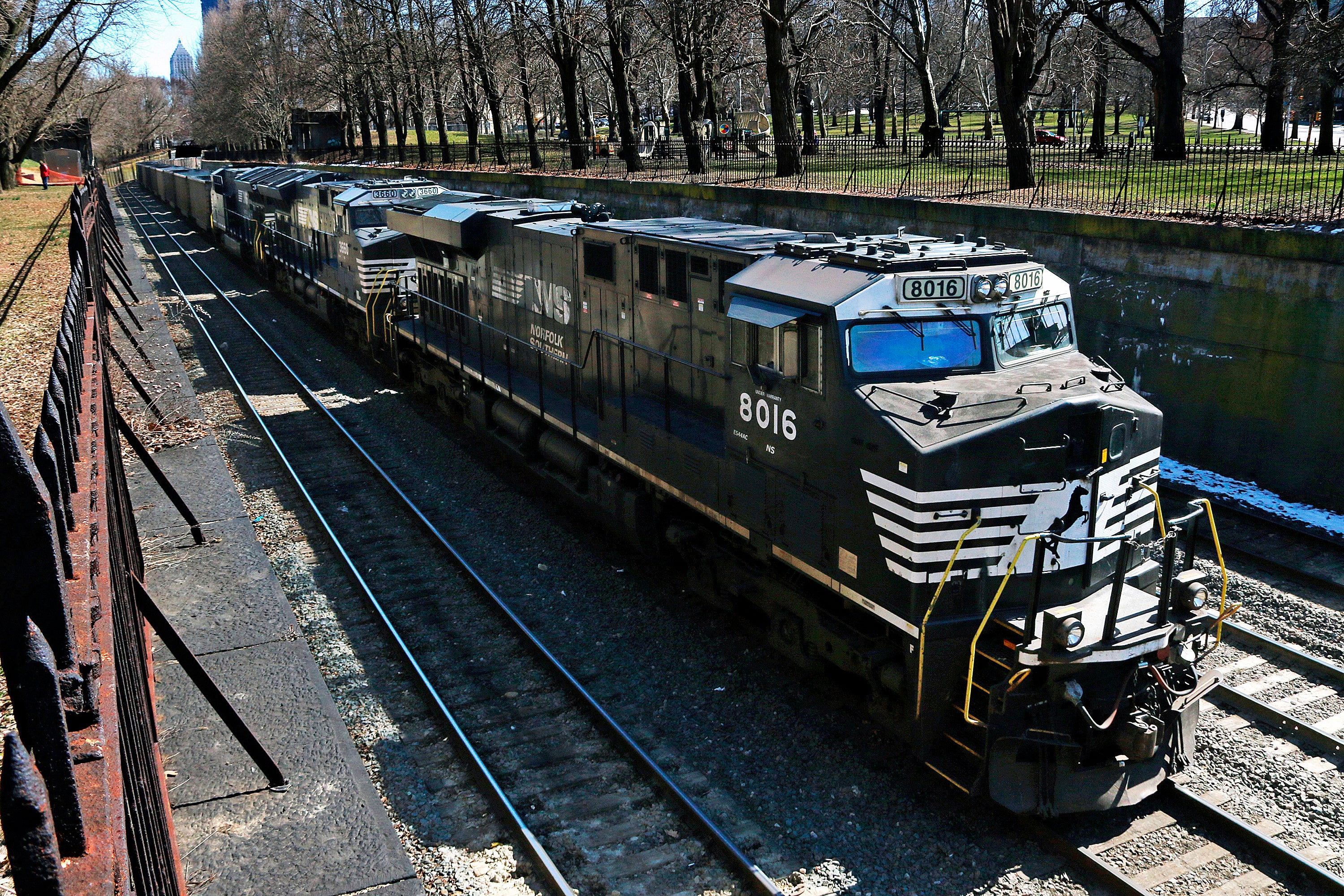Norfolk Southern is first railroad to give all workers sick time but all see progress in labor talks
Norfolk Southern became the first major freight railroad with deals to provide sick time to all of its workers Monday, but the other railroads are making progress with nearly 60% of all rail workers securing this basic benefit

Your support helps us to tell the story
This election is still a dead heat, according to most polls. In a fight with such wafer-thin margins, we need reporters on the ground talking to the people Trump and Harris are courting. Your support allows us to keep sending journalists to the story.
The Independent is trusted by 27 million Americans from across the entire political spectrum every month. Unlike many other quality news outlets, we choose not to lock you out of our reporting and analysis with paywalls. But quality journalism must still be paid for.
Help us keep bring these critical stories to light. Your support makes all the difference.
Norfolk Southern became the first major freight railroad with deals to provide paid sick time to all of its workers Monday, but the other railroads are making progress with nearly 60% of all rail workers securing this basic benefit since the start of the year.
All of the major freight railroads have said they are committed to resolving this key issue that nearly led to a strike in last year's bitter contract talks. But most of those railroads — which include CSX, Union Pacific, BNSF, Canadian National and Canadian Pacific Kansas City — are still negotiating with a number of their unions.
Most of the sick time deals, including the one Norfolk Southern announced for yardmasters Monday, provide four days of paid sick time and give workers the option to convert three days of personal leave time into sick days. The conductors and engineers who endure the most unpredictable schedules while operating the trains have been getting five days of paid sick leave with the option to convert two leave days into sick time.
So all of these deals provide up to seven days of paid sick time, and the railroads promised to pay workers for any unused sick time at the end of each year.
Last fall, the railroads refused to add paid sick time to the deal they had already been negotiating for several years, but they relented this year after intense pressure from the public and several key lawmakers including Vermont Sen. Bernie Sanders. Rail workers were forced to accept a five-year deal that provided 24% raises and $5,000 in bonuses after Congress blocked their ability to strike because of fears of an economic catastrophe, but that agreement didn't address their quality-of-life concerns.
About 300 workers are covered by this latest Norfolk Southern agreement. Jeremy Ferguson, president of the Transportation Division of the International Association of Sheet Metal, Air, Rail and Transportation Workers union that represents the Norfolk Southern yardmasters and conductors nationwide, praised the progress that has been made.
“This agreement will provide our hardworking yardmasters the time they need and deserve to take care of their personal wellbeing,” Ferguson said.
A separate larger agreement between SMART-TD and Norfolk Southern that also addresses schedule concerns for conductors was ratified Friday.
“Following national labor negotiations, we committed to address quality of life issues for our craft railroaders. With today’s agreement, we make good on that promise,” said Norfolk Southern President and CEO Alan Shaw.
Norfolk Southern and the other major railroads tout the progress they have made so far, but officials with the Transportation Trades Department — the AFL-CIO labor coalition that includes all the rail unions — said much work remains to address workers' concerns.
“For months, railroads have been at the table individually with their unions to find a path forward on the quality-of-life matters that came into the spotlight during the round’s final days. Today, railroads have new paid sick leave agreements in place to cover the majority of the unionized rail workforce," said Ian Jefferies, who leads the Association of American Railroads trade group. "Additionally, multiple railroads have secured deals to give operating craft employees greater scheduling predictability."
Subscribe to Independent Premium to bookmark this article
Want to bookmark your favourite articles and stories to read or reference later? Start your Independent Premium subscription today.